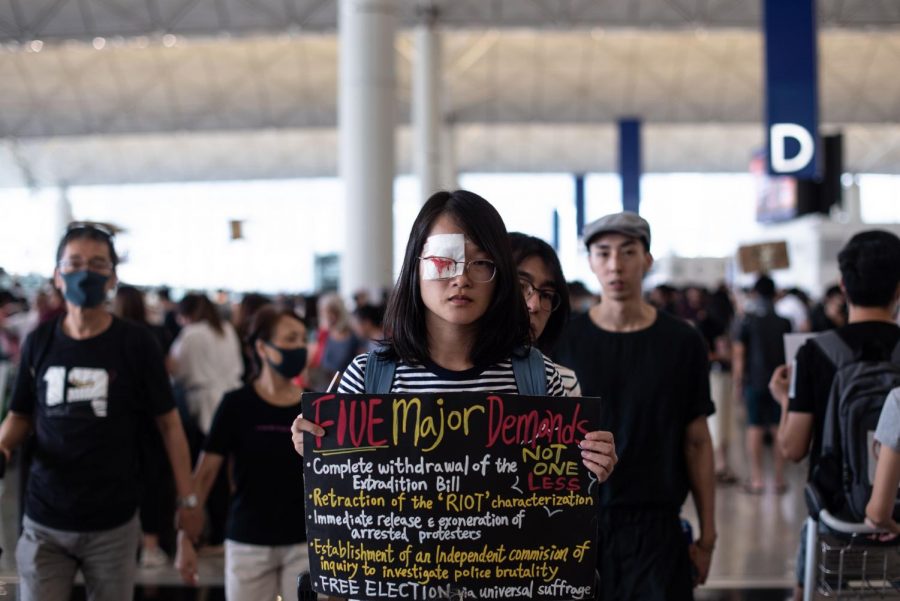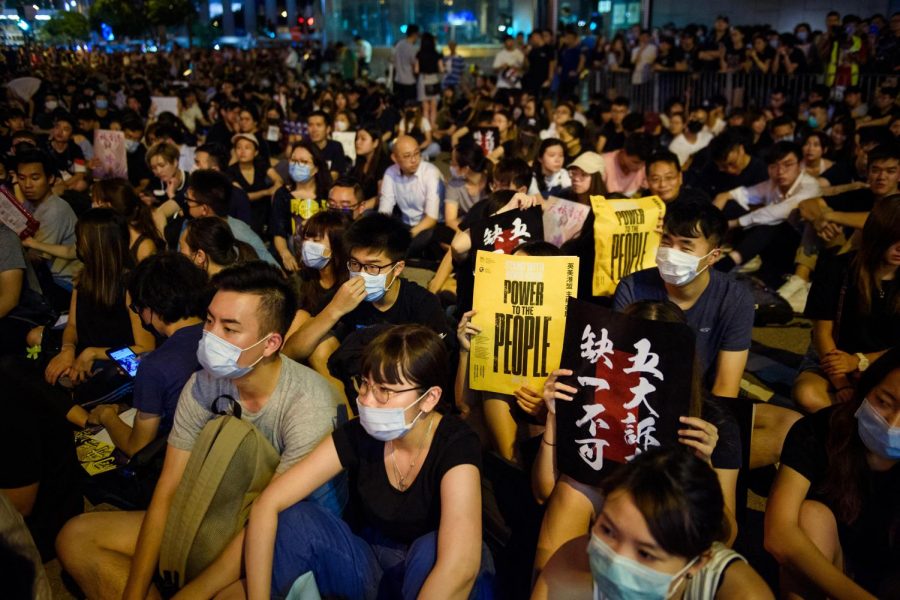Power to Hong Kongers
Protestors take to the streets of Hong Kong to fight for their rights.
During a protest rally in front of the Chater Garden in the Central District, participants hold up signs with the inscription “Power to the People” on August 16, 2019. (Gregor Fischer/DPA/Abaca Press/TNS)
Sparked by the proposition of an extradition bill, protests have broken out across Hong Kong as citizens fight back against unjust policies and the steady encroachment of China into their government. The Fugitive Offenders and Mutual Legal Assistance in Criminal Matters Legislation bill was created to allow alleged criminals in Hong Kong to be extradited by outside governments to face trial in the country the crime was committed in. The bill was drafted in response to a case in February, where a man murdered his girlfriend while in Taiwan later confessed to the crime, but could not be extradited for trial. Despite the bill now being shelved, protests continue as their list of demands grows.
It’s important to understand the context in which the protests are taking place, and why Hong Kong’s primary issue with the bill was with China. When Britain defeated China in the opium wars in 1840, they took control of Hong Kong and established a semi-democratic government. In 1884, Britain and China came to the agreement that in 1997, Hong Kong would go back under Chinese rule, but still retain its capitalist economy and current government for the next 50 years, under a policy called “one country, two systems.” Despite this policy still being in place, citizens of Hong Kong have seen China increasingly and unjustly encroach on their autonomy, according to the Economist. The creation of the bill caused concerns of China abusing it to extradite critical Hong Kongers under made-up claims.

Protesters continue to protest the bill — which, while shelved, has not been removed from the table altogether — but also have begun to demand accountability for the police brutality that has taken place in response to the protests. While there are occasional outbreaks of violence among protestors, peaceful protests have also been met by inexcusable brutality by police. Police have used water cannons and live ammunition against protestors, as well as firing tear gas canisters into the crowds. One woman allegedly had her eye injured by a projectile thrown by police, causing her to become a figurehead for the protestors. Citizens of Hong Kong deserve the right to see their government take responsibility for the violence it has caused, rather than having their protests called “the bottom line of a civilized society.”
Now #HongKong protestors walking next to us are shouting “give back the eye.” The police stand accused of blinding a woman protestor – shot with a bean bag – but the police deny the allegation. @CBSNews is here. #HongKongProtests #antiELAB pic.twitter.com/ANkIvAbZ5z
— Ramy Inocencio 英若明 (@RamyInocencio) August 18, 2019
Despite the protests having begun in March, the demands have not yet been met. Government officials should be using their power to support the people they’re supposed to be representing, rather than condemning them and silencing their voices. The issues with the police brutality need to be addressed, as do the issues raised with the extradition bill. Until 2047, Hong Kong belongs to its citizens, and its citizens should be the ones to make decisions and have their voices heard.



